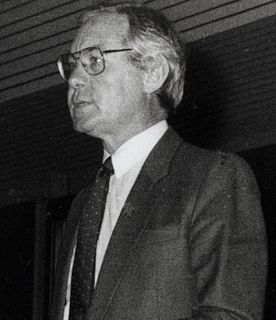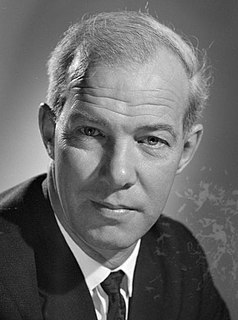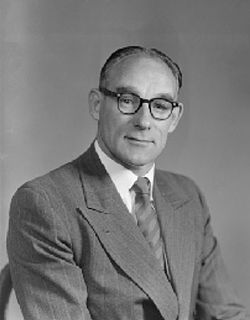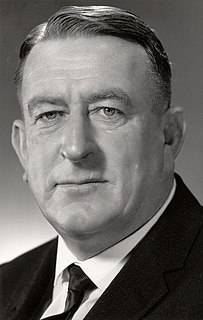Related Research Articles

Sir John Richard Harrison was a New Zealand politician. After serving in a number of capacities in the National Party, he served as Speaker of the House of Representatives from 1978 to 1984.

Cedric Russell Marshall, known as Russell Marshall, is a former New Zealand politician of the Labour Party and diplomat.

Phillip Albert Amos was a New Zealand politician of the Labour Party.

Bruce Gillespie Barclay was a New Zealand politician, being the Member of Parliament for Christchurch Central in the South Island.
Logan Francis Sloane was a New Zealand politician of the National Party.

Ronald Morrison Barclay was a New Zealand politician of the Labour Party.

Eric Sidney Fostyn Holland was a New Zealand politician who served as Shadow Minister of Energy under Robert Muldoon and was an elected member of the House of Representatives from 1967 to 1981 for the National Party.

Brian Peter MacDonell is a former New Zealand Member of Parliament for Dunedin Central in the South Island.

Percy Benjamin Allen was a New Zealand politician of the National Party.

Allan McCready was a New Zealand politician of the National Party.
Anthony Peter David Friedlander is a former New Zealand politician of the National Party. After politics, he worked as a lobbyist for the Road Transport Forum (RTF).
Ian John Shearer was a New Zealand politician of the National Party, environmentalist and research scientist.
Edward Emanuel Isbey was a New Zealand politician of the Labour Party.
Gordon Christie was a New Zealand politician of the Labour Party.

Sir Douglas Julian Carter was a New Zealand politician of the National Party.
Brian Spencer George Lambert, commonly known as Bill Lambert, was a New Zealand politician of the National Party.
Edwin Joseph Keating was a New Zealand Member of Parliament for the Labour Party, academic and director of the Bank of New Zealand.
Ian Terence Quigley was a former New Zealand politician of the Labour Party.
Hastings was a parliamentary electorate in the Hawke's Bay Region of New Zealand from 1946 to 1996. The electorate was represented by nine Members of Parliament. The Hastings electorate was a typical bellwether electorate, frequently changing between the two main parties.
William Robert Fenton, known as Bob Fenton, was a New Zealand politician of the National Party.
References
- Mayson, Richard (2016). Not So Silent: The Life of Richard Mayson. New Zealand: White Stone Publishing. ISBN 978-0-473-36652-0.
- Traue, James Edward, ed. (1978). Who's Who in New Zealand (11th ed.). Wellington: Reed.
- Wilson, James Oakley (1985) [First ed. published 1913]. New Zealand parliamentary record, 1840–1984 (4 ed.). Wellington: V.R. Ward, Govt. Printer. OCLC 154283103.